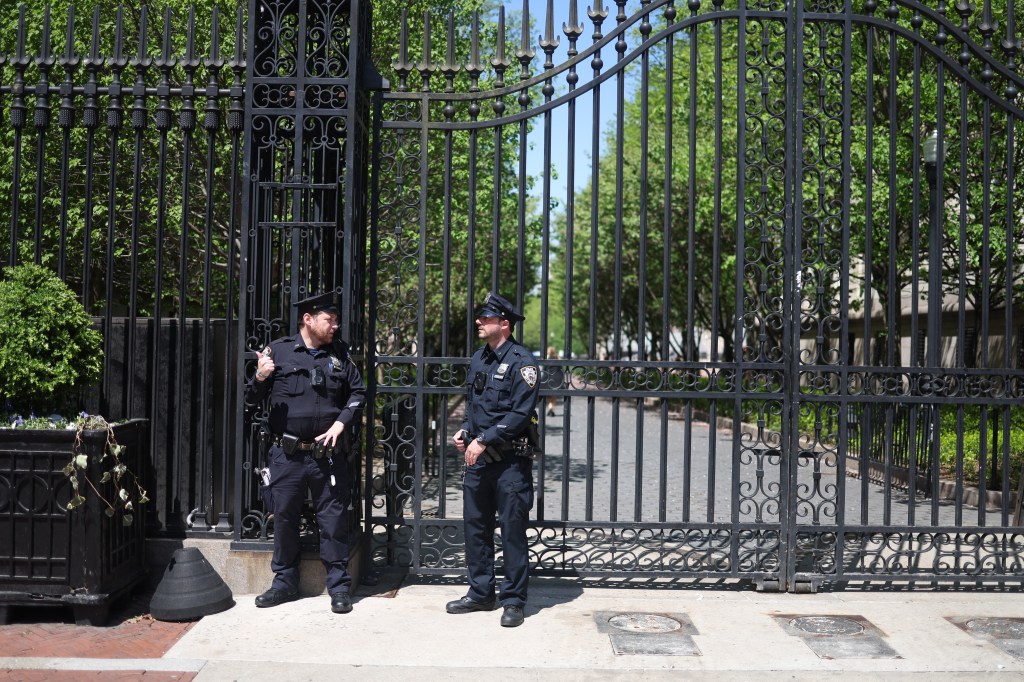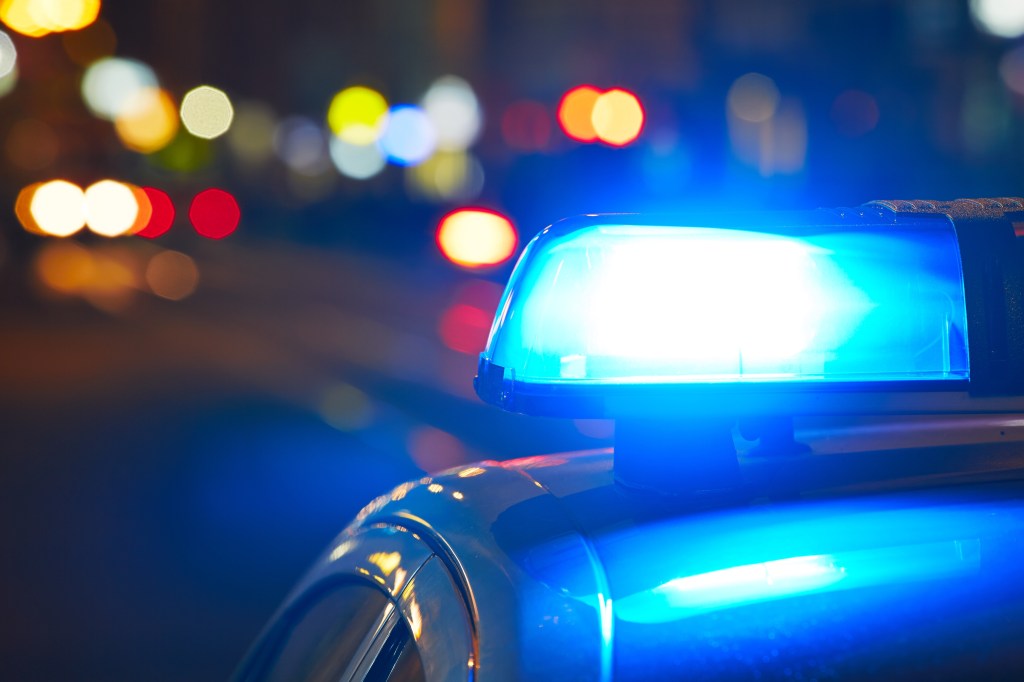The pro-Gaza encampment at Columbia University that had exploded into a national phenomenon has been dismantled, leaving an unsettling quiet on campus Wednesday and questions about how the school can move forward.
NYPD cleared the tent city as part of an operation to stop the student occupation of Hamilton Hall. A total of 109 protesters were arrested in the late Tuesday night campus raid, both in and around campus, police said.
Hours later, students and faculty continued to grapple with the fallout of mass arrests and the university’s decision to call in police for the second time since the encampment was erected in mid-April.
With undergraduate classes done for the semester, some students schlepped boxes and said their years-end goodbyes, as others rallied for the rights of Palestinians and against university leadership. Students who live off campus and faculty were still blocked from entering the university gates.
Ahmed Suleyman, 22, stood on Amsterdam Ave. in his Columbia blue cap and gown with a makeshift sign that read: “COPS OFF CAMPUS.” Weeks away from graduation, he’s struggled watching his campus descend into such unrest during his final days.
“I can’t study. I can’t think about anything else,” said Suleyman, who has not participated in protests but sympathized with the Palestinian cause. “I feel like at a bare minimum, I should be allowed to enter the campus and not have to worry, not have such a huge police presence.”

Dozens of those arrested were inside Hamilton Hall, where students had moved in less than a day prior. Police could not say how many of those arrested had no ties to the university, but Mayor Adams attributed an escalation in tactics to “outside agitators” on campus.
College officials encouraged students who could rearrange their plans to leave campus early. Final exams and review sessions were moved online under a new directive Wednesday from the Provost. Some graduate school classes still in session on the Morningside Heights campus were being held remotely.
“I know I speak for many members of our community in saying that this turn of events has filled me with deep sadness,” Columbia president Minouche Shafik wrote in a memo Wednesday to students and faculty. “I am sorry we reached this point.”
A Columbia spokesman confirmed Hamilton Hall has been cleared of all protesters and remains an active crime scene under investigation by the NYPD. Alongside the main encampment on the west lawn, smaller tent demonstrations that had popped up in recent days and the materials left near them were also removed, he said.
Shafik said protesters are “fighting for an important cause, for the rights of Palestinians and against the humanitarian tragedy in Gaza,” and can express their views.
“But students and outside activists breaking Hamilton Hall doors, mistreating our Public Safety officers and maintenance staff, and damaging property are acts of destruction, not political speech,” she said, adding that antisemitic comments, many outside the campus gates, have made Jewish students feel unwelcome.
For some faculty and staff, the university’s conciliatory words fell on deaf ears.

In the afternoon, a Columbia professor-led rally outside campus gates drew a couple hundred protesters, with signs that read: “HANDS OFF OUR STUDENTS” and “SHAME.” A student demonstration followed.
“Shame on the administration of this university,” said Rashid Khalidi, a Columbia professor of Arab Studies. “They will go down in infamy for having done what they did the other night.”
Some students who say they saw videos or heard from others that protesters with no ties to Columbia were involved in the Hamilton Hall occupation and campus lawn encampment — a claim that student organizers vehemently deny.
The coalition behind the tent demonstration, Columbia University Apartheid Divest, was expected to hold a press conference and rally Wednesday evening at City College of New York, where more than 100 protesters were also arrested overnight.No protests took place on campus all day, a spokesman confirmed.
The pro-Gaza encampment first emerged on campus on April 17, as Shafik testified before Congress about efforts to curb antisemitism. Thirty hours later, university officials had suspended students involved and called the NYPD, with cops arresting more than 100 students while clearing the lawn.
The protesters quickly returned and formed a second iteration of the encampment.
Shafik on Monday said negotiations with student protesters to dismantle it had broken down, and Columbia would not to concede to their main demand: to divest from Israel. Students faced disciplinary action up to expulsion for the Hamilton Hall occupation.
In her letter requesting assistance, Shafik requested the NYPD remain on campus until May 17, two days after graduation. While some students welcomed the additional security, others suggested it rendered the campus unrecognizable.
“It’s insane that it got to this point,” said Eliana Goldin, a Columbia junior and president of Aryeh, a Zionist student group. “I guess it was expected when people were chanting globalized Intifada months ago, and the university didn’t say that they would get in trouble. So it only empowered them to go further.”
“But I’m glad the NYPD came in and shut it down because it was getting out of hand,” she said.
The police presence was visible Wednesday at several checkpoints and around the campus perimeter.
“It feels deader than a ghost town,” said Max, 19, a sophomore at Columbia College. “Walking back on campus on a beautiful evening, you expect to see students, teeming with life. All I saw were NYPD officers that I couldn’t even look in the eye.”








Leave a comment